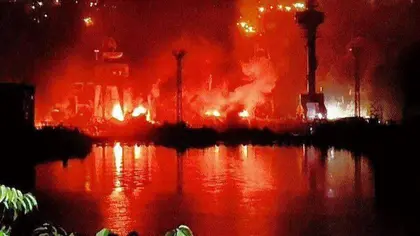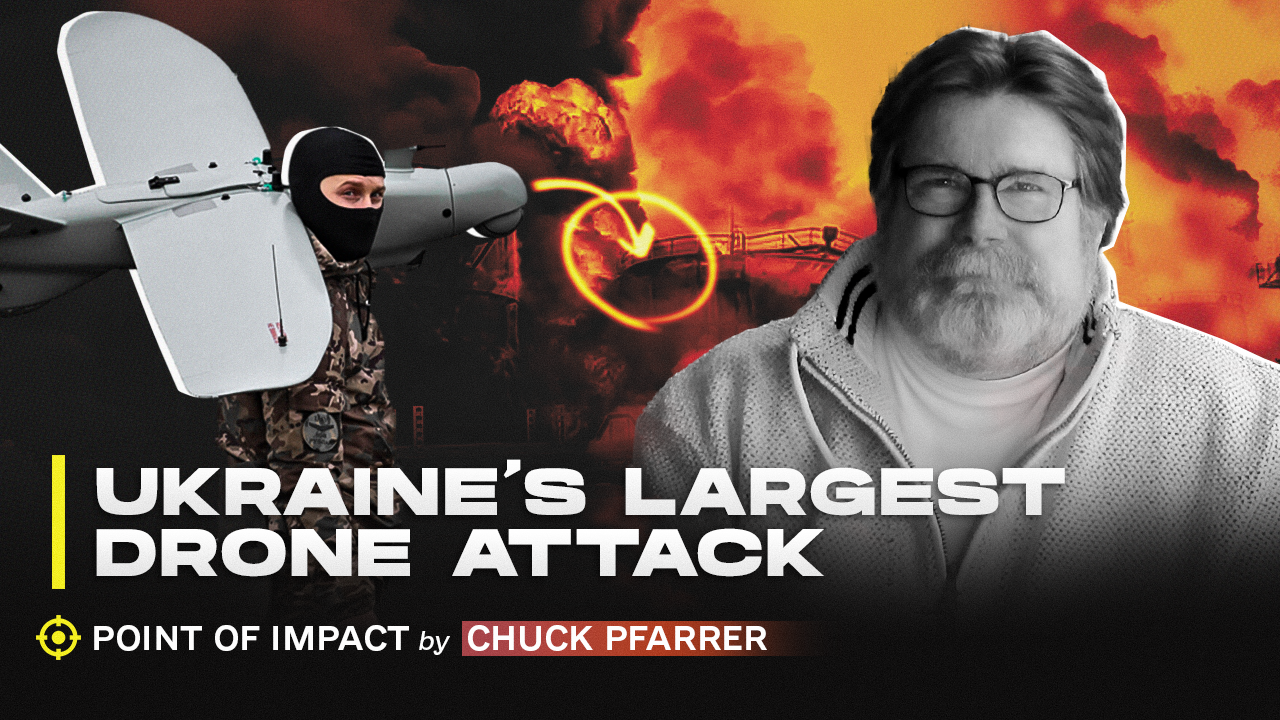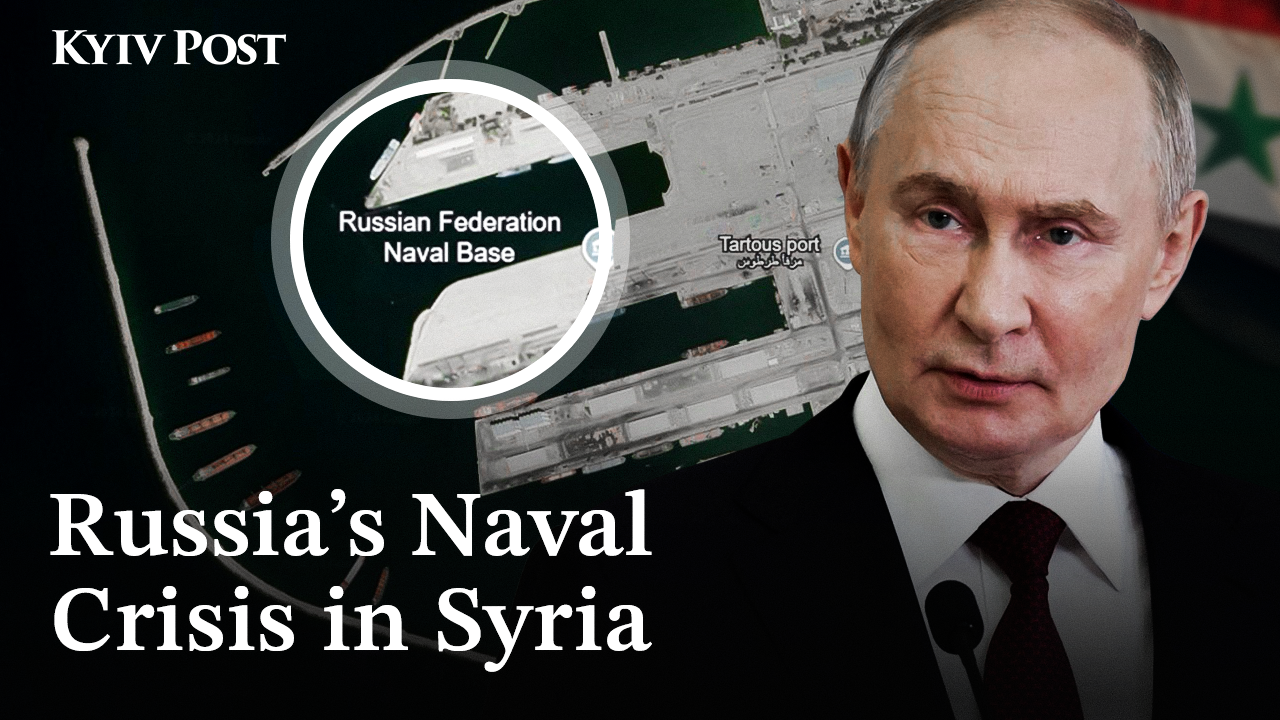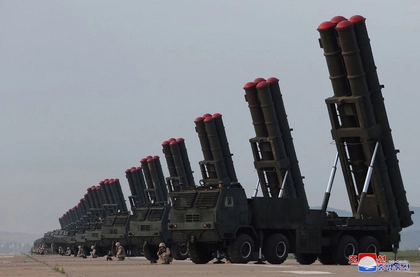Kyiv has confirmed it carried out an overnight missile attack on a shipyard in occupied Crimea, saying two Russian Black Sea Fleet Vessels had been damaged in a “very good result” for Ukraine.
A series of explosions rocked the Sevastopol Shipyard in the early hours of Wednesday morning and footage posted to social media showed a large blaze at the maritime facility.
JOIN US ON TELEGRAM
Follow our coverage of the war on the @Kyivpost_official.
Russia’s defense ministry said the attack involved ten cruise missiles and “three unmanned boats,” claiming all but three of the missiles had been intercepted.
- Examine the most contemporary Ukraine news that came out today.
- View the most recent Ukraine news pieces that came out today.
On Wednesday morning in an exclusive comment to Kyiv Post, a source in Ukraine’s Military Intelligence Directorate (HUR) confirmed Kyiv had carried out the attack, adding: “There is information about at least the destruction of a large landing ship and a submarine.
“This is a very good result, of course.”
⚡️Several powerful explosions were heard in the temporarily occupied #Sevastopol, Crimea, overnight. Russian occupation authorities reported a missile attack.
— KyivPost (@KyivPost) September 13, 2023
Local Telegram channels reported a fire at the Sevastopol Shipyard, which is a location for the construction and repair… pic.twitter.com/eR0vXIl3GC
Preliminary reports suggest the vessels were a Russian Kilo-class submarine and a Ropucha landing ship.
The source did not identify which weapons Kyiv had used in the attack, saying: “Let the enemy figure it out for himself and establish what exactly passes his means of anti-aircraft and anti-missile defense.”
The Sevastopol Shipyard maintains and services Russian ships and submarines, many of which are used to launch missile attacks on Ukrainian cities.
The source added: “This object was of particular importance to the enemy, taking into account the possibilities for repair and maintenance of ships of the Black Sea Navy of the Russian Federation.

VIDEO: Ukrainian Special Forces Decimate 16 Russian Fortifications, Five EW Systems
“One way or another, the entire enemy fleet is being used against Ukraine. Taking out a large amphibious ship is very important.
“This means reducing the risks of future amphibious operations or various evacuation operations from Crimea for the aggressor. Therefore, today it is important to hit and damage these objects.”
The remains of the Russian Ropucha-class landing ship "Minsk" lie smouldering in drydock, Sevastopol, temporarily-occupied Crimea. pic.twitter.com/J7ixry3z1z
— Jimmy Rushton (@JimmySecUK) September 13, 2023
Which cruise missiles could have been used?
The Ukrainian Telegram channel Insider UA quoted a post by the Commander of the Ukrainian Air Force Mykola Oleshchuk as saying that the missile strike on Crimea was carried out with the help of aviation without going into specifics as to what weapons were used. The reference to aviation suggests it was possible that the UK’s Storm Shadow or France’s SCALP long-range missiles were used for the attack. These are the only two air-launched cruise missiles currently known to be held by Ukraine.
It is of course possible that Oleshchuk’s comments were intentionally vague to prevent the Russian air defense forces from knowing exactly what had gotten through. It is known, for instance, that Ukraine has been working on developing its own ground-launched long-range cruise missiles including a derivative of the R-360 Neptune anti-ship missile as well as its own Korshun and HRIM-2 missiles (modernized versions of the Soviet Kh-55).
Any of these could have been used either separately or in combination.
Storm Shadow or France’s SCALP
The UK’s Storm Shadow and the French SCALP version are fire and forget cruise missiles developed by MBDA missile systems. The “export” version of the missile, which is what is believed was supplied to Ukraine, has a 300 km range and has been modified to allow it to operate from Ukraine’s existing fleet of former-Soviet aircraft without further adjustment.
The missile uses a combination of GPS, terrain mapping and other sensors to deliver its 450 kg, two stage ‘Bomb Royal Ordnance Augmented Charge’ (BROACH) warhead onto the target.
Neptune derivative
The standard R-360 Neptune system can deliver a 150-kilogram high explosive fragmentation warhead out to a range of 300 kilometers. Unnamed Ukrainian defense officials have claimed that the new version will be as a long-range surface-to-surface missile (SSM) with a much larger range and payload than the current missile. That the work being done to achieve this has been completed was hinted at strongly by Oleksiy Danilov, Secretary of Ukraine’s National Security and Defense Council (NSDC).
Korshun / HRIM-2
While the exact technical details of the missiles are confidential it’s believed that the missiles will be designed for air, ground or ship launch. The Korshun will be a sub-sonic cruise missile to be used against static land targets. It will weigh around 1,300 kg and deliver a 480 kg warhead to a range of around 700 kilometers.
The Hrim-2 is believed to be a ballistic missile and will deliver the same warhead as the Korshun but on a much larger missile with a weight of around 3,000 kilograms. The maximum range is currently believed to be around 500 kilometers.
You can also highlight the text and press Ctrl + Enter













